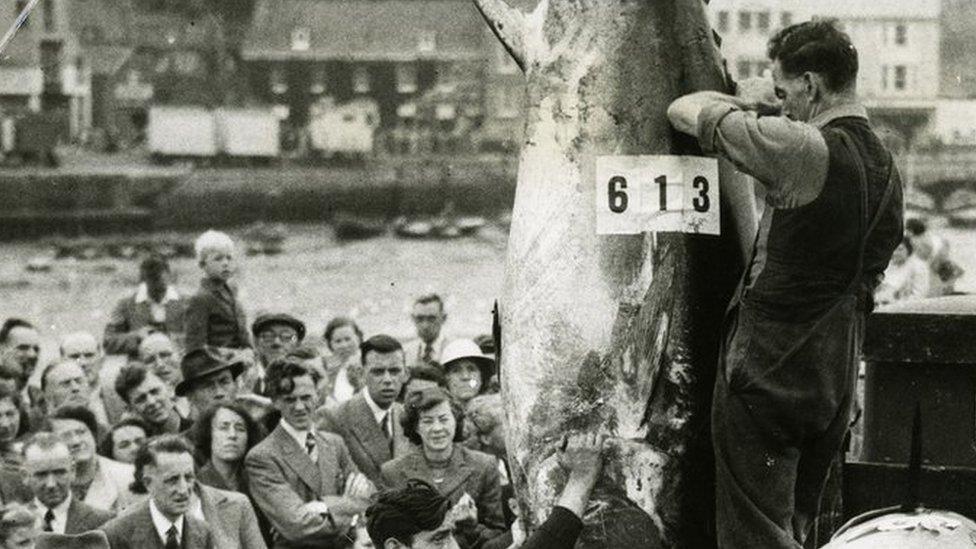Project to identify what bluefin tuna feed on
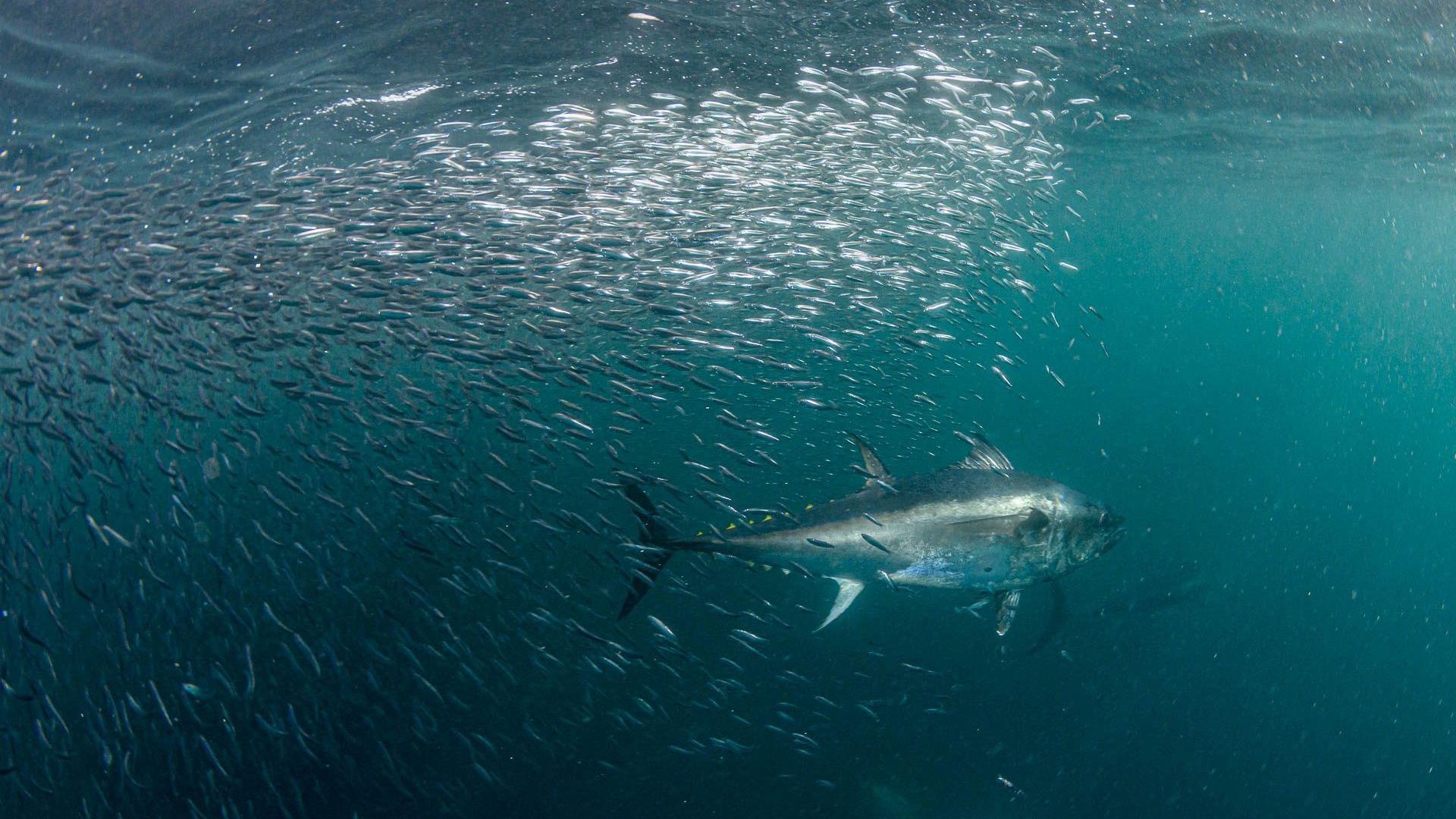
Dr Tom Horton said researchers "really don't know" what bluefin tuna ate
- Published
Marine conservationists are trying to find out exactly what fish Atlantic bluefin tuna eat as the species make its now annual return to the South West, after decades of absence.
The project team will work with the Marine Management Organisation (MMO) and fishermen to examine the content of the stomachs of tuna caught off Devon and Cornwall.
Project lead Dr Tom Horton said "although we have some idea what they may be eating, we don't really know".
"This is important, as if the populations of prey dwindle for one reason or another, the bluefin may well begin to migrate elsewhere," he added.
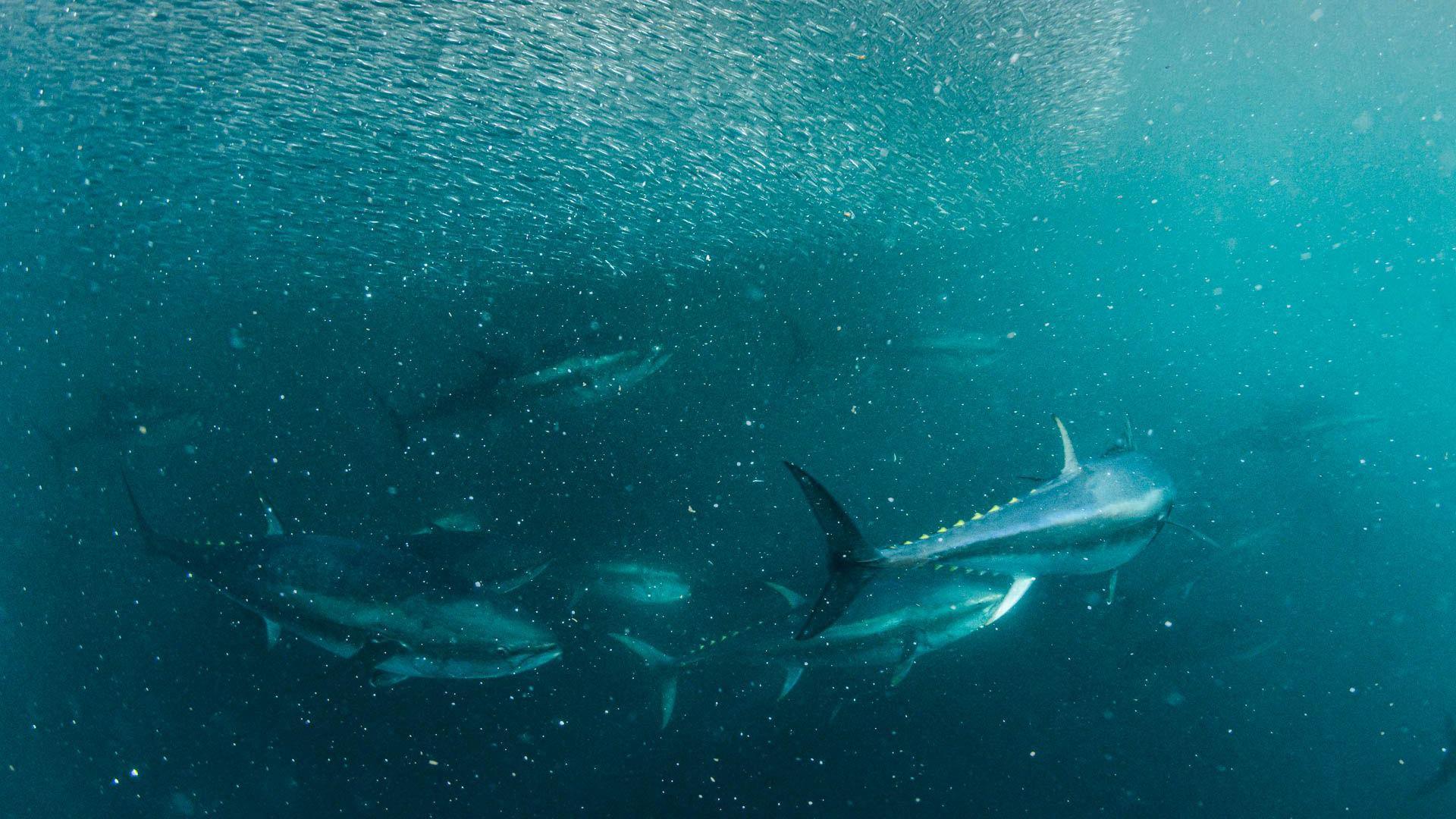
Ms Theobald said bluefin tuna was "a unique and incredibly important hand line fishery to the South West"
Chris Gill, one of the commercial bluefin tuna fishermen involved in the project, said: "We're all invested in the comeback of bluefin tuna and being able to make sure there is enough food that keeps them coming here is clearly a good idea."
After decades of absence, bluefin tuna have returned to the South West coast in recent years.
A pilot commercial bluefin tuna fishery for 2025 opened on 1 July, with the MMO issuing 15 licences with a quota of 45 tonnes, external.
In addition the organisation issued about 140 recreational catch-and-release licences for the fishery which runs from mid-July until until the end of November.
MMO principal marine officer Emily Theobald said: "More science means more understanding, which means a better ability for fisheries managers to manage effectively and sustainably.
"We would be so excited to see this research undertaken and better our understanding of bluefin tuna, which is a unique and incredibly important hand line fishery to the South West."
The project lead from the University of Exeter's Centre for Ecology and Conservation in Penryn is backed by the Devon Environment Foundation and Cornwall Council, and has broad support from local environmental charities.
Follow BBC Cornwall on X, external, Facebook, external and Instagram, external. Follow BBC Devon on X, external, Facebook, external and Instagram, external. Send your story ideas to spotlight@bbc.co.uk, external.
- Published7 December 2023
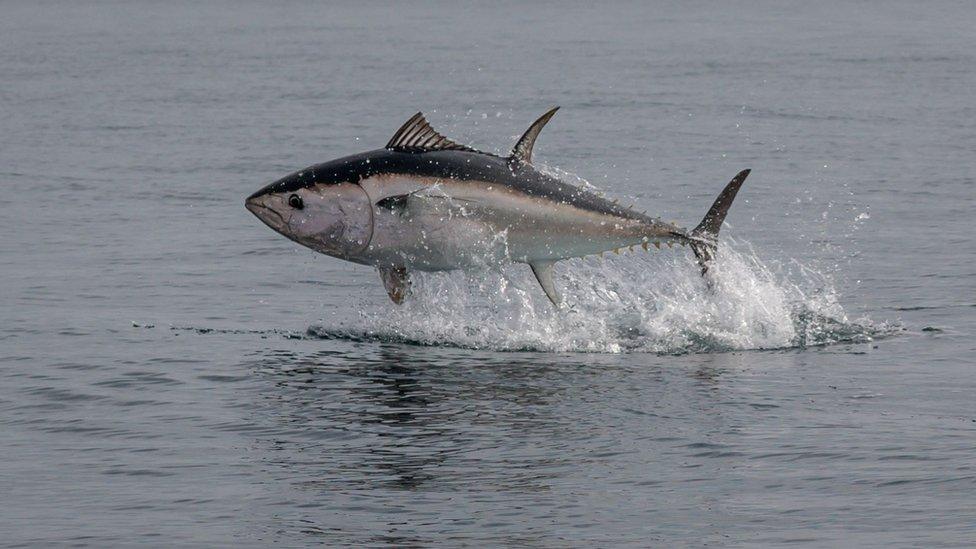
- Published1 April 2021
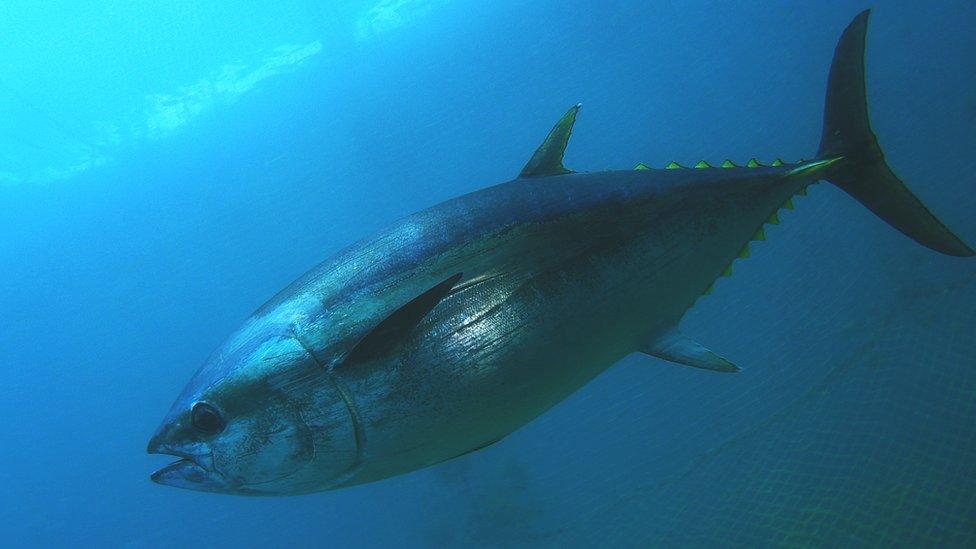
- Published22 October 2018
